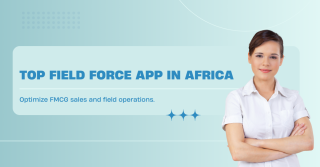How Digital Tools Improve Sales Planning For Healthcare Companies

In today’s fast-paced healthcare companies, strategic sales planning is crucial. With increased competition, changing regulations, and evolving customer demands, healthcare companies must rely on technology to gain an edge. Digital tools not only streamline processes but also enable data-driven decision-making that improves productivity and profitability.
In this blog, we’ll explore how digital tools are transforming sales planning in the healthcare sector.
Why Sales Planning is Critical in Healthcare
Sales planning in healthcare isn’t just about reaching revenue goals—it involves navigating complex buyer journeys, building trust with healthcare professionals, and complying with regulatory standards. A well-executed sales plan ensures:
-
Efficient resource allocation
-
Accurate sales forecasting
-
Better market segmentation
-
Improved customer engagement
-
Regulatory compliance
Challenges Faced by Healthcare Sales Teams
Before diving into the digital transformation, let’s understand the key hurdles healthcare sales teams often face:
-
Complex product portfolios (medical devices, pharmaceuticals, services)
-
Geographically dispersed field teams
-
Time-consuming manual reporting
-
Limited visibility into sales performance
-
Strict compliance and documentation needs
These challenges can lead to missed opportunities, inefficiencies, and delayed decision-making.
The Role of Digital Tools in Sales Planning
Digital tools offer solutions that address the above challenges and more. Here's how they help healthcare companies streamline and optimize sales planning:
1. Centralized Data Management
Digital CRMs and sales platforms centralize all customer-related data, offering instant access to purchase history, preferences, and sales forecasts. This unified view eliminates silos, ensuring sales reps and managers are always working with up-to-date, reliable information for better coordination and planning.
2. Enhanced Field Sales Management
With features like GPS tracking, route planning, and automated check-ins, managers can oversee field operations in real time. This leads to smarter territory management, reduced travel costs, and higher productivity, allowing reps to spend more time engaging with healthcare professionals.
3. Data-Driven Forecasting
Advanced analytics tools analyze historical data and trends to predict product demand, emerging markets, and potential sales peaks. These insights empower companies to optimize inventory, align marketing strategies, and minimize wastage.
4. Personalized Customer Engagement
Digital segmentation tools allow reps to customize their pitch based on specialties, purchasing habits, and location. This targeted approach builds stronger relationships, increases conversion rates, and improves customer satisfaction in a highly specialized industry.
5. Compliance & Documentation
Healthcare-specific sales tools often come with built-in regulatory features, including compliance checklists and digital audit trails. These tools help ensure that every interaction meets industry regulations, reducing legal risks and simplifying inspections or audits.
6. Training and Upskilling Sales Teams
Online learning platforms provide accessible, consistent training modules that help reps stay informed about new products and regulations. This supports continuous learning, ensures uniform messaging, and accelerates onboarding for new hires.
7. Automated Reporting and Insights
Digital reporting tools eliminate the need for manual data entry. Sales performance metrics, KPIs, and activity reports are generated in real time, enabling managers to quickly identify issues, adjust strategies, and make informed decisions without delay.
Conclusion: Digital Transformation is No Longer Optional
In a highly regulated and competitive industry like healthcare, digital tools aren’t just helpful—they’re essential. From better customer engagement to smarter forecasting and compliance, technology enables healthcare companies to build a future-proof sales strategy.
By adopting the right digital tools, healthcare companies can streamline their sales planning, empower their field teams, and drive consistent growth.
FAQs
1. What are the best digital tools for healthcare sales planning?
Some popular tools include:
-
Salesforce Health Cloud
-
HubSpot CRM (customized for healthcare)
-
Microsoft Dynamics 365
-
Zoho CRM with healthcare modules
2. How does sales forecasting benefit healthcare companies?
Sales forecasting helps predict demand, plan inventory, avoid stockouts, and allocate resources efficiently—leading to cost savings and improved customer satisfaction.
3. Are digital tools secure for handling sensitive patient and sales data?
Yes, most modern tools follow industry compliance standards like HIPAA and use encryption, access control, and audit trails to protect data.
4. Can small healthcare companies benefit from digital sales tools?
Absolutely. Many tools offer scalable pricing and features that can support small teams and grow with the business.
5. How long does it take to implement a digital sales planning tool?
Implementation time varies based on the tool and company size. On average, it can take from a few days to several weeks, including training and data migration.









